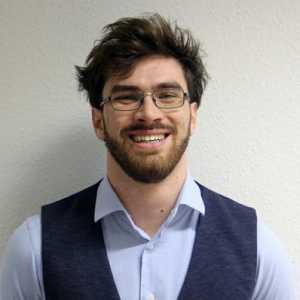“The different fates of architecture: reoccupation patterns in the Madaba Plains (Jordan)” (ReMaPla)
- Supervisor: Agnès Vokaer
- Research center: Département d'enseignement d'Histoire, Arts et Archéologie (HAA)
- Research start date: 01.09.2020
Description
The project investigates the phenomenon of reoccupation of archaeological sites in antiquity, a recurring feature in most sites in the Middle East. Given the multiplicity of experiences of local communities across such a wide area and the strong regionalism that affects several aspects of settlements’ development, the project will start considering one single regional context, the Madaba Plains in modern Jordan, in its historical occupation – tentatively from the Hellenistic period onwards – embracing not only the major sites, but also the landscape in its entirety.
Reoccupation can take place in different ways, also within the same site: reoccupation with limited restoration in a restricted portion of the complex (e.g. re-roofing, re-plastering of cisterns, etc.); reoccupation with radical functional changes, often connected with a marked re-organisation of the built environment; and finally a proper re-building – or better, building anew –, consisting in the complete demolition of earlier structures and the reuse of their building materials or of spolia coming from elsewhere in the site to build a completely new complex. Among these different forms, reuse of building materials appears to be particularly frequent and challenging to interpret.
Even though pragmatism/opportunism is most likely the more reasonable explanation for many episodes of reoccupation, it does not appear to be dealing with a homogeneous phenomenon, as it has been treated so far by the vast majority of the studies on the topic. On the contrary, if we take a closer look a dramatically complex picture emerges. Because of the lack of extensive and comparable evidence from a sufficient number of excavated case studies across the Middle East, it would not be scientifically correct, or meaningful, to seek for “global” answers and it seems more reasonable for now to focus only on the Madaba Plains.
The Madaba plains are a valid case study for the following reasons: long occupation; specific material culture, since in several periods it was a coherent cultural region (for instance, in the Islamic period it was part of the Balqa); availability of a vast archaeological documentation from previous excavations and surveys, since the region has been under investigation for a long time thanks to the Madaba Plains Project, that had been running for over forty years; still on-going fieldwork at some sites, including an archaeological excavation season and regional survey.
Recently, the topic of reoccupation – and in particular, reuse – often recurs in the field of preservation and development of conservation plans for cultural heritage and historical centres. Aside its historical and archaeological relevance, the present project offers a systematic tool to investigate the phenomenon of reoccupation in general: it is not only one of the few attempts to deal with the topic on a regional level, investigating an important historical region of the Middle East; but represents potentially a support for plans for conservation and development, not strictly archaeological, but also practical. The social impact can appear in form of engagement of local communities in the process of preserving and valorising the natural and cultural heritage of the region, as well as in learning from the past modalities of land use and different economic strategies better responding to the climatic crisis that is hitting the region.
Biography
I am an archaeologist, with particular interest in ancient urbanism, architecture and social structures, with a long experience in archaeological interdisciplinary research. My specialisation is on the Roman and Byzantine periods, but I ventured over the last years, with his PhD work and postdoctoral researches, into the Early Islamic, Middle Islamic and even Late Islamic periods, collaborating on several projects in the Near East, in particular with the Islamic Archaeology Research Unit at the University of Bonn (Tall Hisban in Jordan and Khirbet beit Mazmil near Jerusalem).
After completing my undergraduate and Master studies in Archaeology at the University of Siena (Italy) and my PhD in Classic Archaeology at the University of Koeln (entirely funded by a 3-year DAAD scholarship), I conducted one-year postdoctoral research at the Annemarie-Schimmel-Kolleg (Bonn) in the framework of the program "History and Society during the Mamluk Era (1250-1517)".
Thereafter, my postdoctoral research continued in two parallel directions. On the one side, I continued to analyse the built environment as marker of social identities as in my previous research, expanding however the chronological horizon of interest, dealing predominantly with the Middle Islamic and Late Islamic rural sites – in particular the Mamluk village at Tall Hisban (Jordan) and Khirbet beit Mazmil (Jerusalem). On the other side, I started looking more specifically into re-occupation patterns not only in single sites, but more through a longue durée, landscape perspective. A major interest is the relation between main centres within a region – the Madaba Plains in Jordan specifically – and landscape – which includes the settlements themselves and the other scattered smaller sites. On this latter topic, I am currently conducting a Cofund Marie Skłodowska-Curie Individual Fellowship project at CReA-Patrimoine, Université libre de Bruxelles.
Selected biography
WORK EXPERIENCE
September 2020 – August 2022: Researcher Fellow, H2020-MSCA-COFUND IF@ULB, Université Libre de Bruxelles, Bruxelles (Belgium); Project: “The different fates of architecture: reoccupation patterns in the Madaba Plains (Jordan) - ReMaPla”
September 2015 – ongoing: External Associated Researcher, Islamic Archaeology Research Unit - Rheinische Friedrich-Wilhelms-Universität Bonn, Bonn (Germany)
November 2017 – September 2018: Post-Doctoral Junior Fellow, Annemarie-Schimmel-Kolleg "History and Society during the Mamluk Era (1250-1517)" - Rheinische Friedrich-Wilhelms-Universität Bonn; Project: “Extended families, tribal ties and movement of people in the Mamluk period: spatial and socio-economic structures in creating, shaping, and maintaining the rural and urban built environment”
EDUCATION
2014 – 2017: PhD in Classic Archaeology at the Universität zu Köln, Germany (Magna cum laude - 1,3) - 3-years DAAD Scholarship
2011 - 2013: Master Degree in Archaeology at the Università degli Studi di Siena, Italy
2011 - 2012: Erasmus at the Universität zu Köln, Germany
2008 - 2011: Bachelor Degree in Archaeology at the Università degli Studi di Siena, Italy
SELECTED ARCHAEOLOGICAL ACTIVITY
2016 - ongoing: Tell Hisban (Madaba Plains Project, Jordan); directors: Prof. Dr. Bethany J. Walker (Rheinische Friedrich-Wilhelms-Rheinische Friedrich-Wilhelms-Universität Bonn) and Oystein LaBianca (Andrews University); Square supervisor and Photogrammetric survey
2017 - 2019: Khirbet Beit Mazmil, Jerusalem; directors: Prof. Dr. Bethany J. Walker (Rheinische Friedrich-Wilhelms-Rheinische Friedrich-Wilhelms-Universität Bonn) and Dr. Benjamin Dolinka; Architectural surveyor
2015: “Northern Jordan Project” (Umm Qais, Jordan); director: Prof. Dr. Bethany J. Walker, DFG - Rheinische Friedrich-Wilhelms-Universität Bonn; Surveyor
2015: Haluza/Elusa (Negev, Israele); director: Prof. Dr. Michael Heinzelmann, Universität zu Köln (Germany); digger
2013 – 2014: S. Marina (Petralia Soprana, Palermo, Italy); director: Prof. Aurelio Burgio, Università di Palermo (Italy); Square supervisor
2011: “Building archaeology in Jordan” Project (Umm es-Surab, Mafraq, Jordan); director: Prof. Roberto Parenti, Università degli Studi di Siena (Italy); Architectural surveyor
2010-2011: Tell al-Mashhad (Jordan); director: Prof. Francesco Benedettucci, Associazione OLIM (Rome); digger
Publications
Monographs
Arab settlements. Tribal structures and spatial organizations in the Middle East between Hellenistic and Early Islamic periods, Archaeopress, Oxford 2019: ISBN 978-1-78969-361-4; ISBN 978-1-78969-362-1 (e-Pdf)
Contributions in edited volumes
"The Making of a Family Farmstead (co-authored with Bethany Walker and Benjamin Dolinka)", in Bethany J. Walker (ed.), Life on the Farm in Late Medieval Jerusalem: The Peasant Farmstead of Khirbet Beit Mazmil, its Occupants and their Industry over Five Centuries, under contract with Equinox
Peer-Reviewed Articles
- “'The Times They Are a-Changin''”. The built environment as a resilience marker of social identities in the Transjordan.", in Studies in the History and Archaeology of Jordan, Volume 14 (under peer-review process)
- “Social Structures and Built Environment in Mamluk Rural and Semi-urban Settlements: Some Preliminary Results”, in Bethany J. Walker and Abdelkader al-Ghouz (eds.), History and Society during the Mamluk Period (1250–1517): Studies of the Annemarie Schimmel Institute for Advanced Study III (Mamluk Studies - Band 24), V&R Unipress, Göttingen 2020 (in press)
- “Walls of Identities. Built environment as Social Marker”, in Bethany J. Walker and Abdelkader al-Ghouz (eds.), Living with Nature and Things: Contributions to a New Social History of the Middle Islamic Periods (Mamluk Studies - Band 23), V&R Unipress, Göttingen 2020, pp. 375-400: ISBN Print: 9783847111030 – ISBN E-Book: 9783847011033
- “Semi-urban or semi-rural settlements: a new definition of urban centres required?”, in Achim Lichtenberger, Oren Tal, and Zeev Weiss (eds.), Judaea/Palaestina and Arabia: Cities and Hinterlands in Roman and Byzantine Times. Volume 44, Panel 8.6; Proceedings of the 19th International Congress of Classical Archaeology Cologne/Bonn, 22 – 26 May 2018. Archaeology and Economy in the Ancient World, (edited by Martin Bentz and Michael Heinzelmann), Propylaeum, Heidelberg 2019, pp. 5-17: ISBN: 978-3-947450-78-7; ISBN: 978-3-947450-77-0 (e-Pdf)
- “Organizzazione spaziale e strutture sociali nel Medio-Oriente Tardo Bizantino e Primo Islamico (V-VIII SEC.)”, in Chiara Cecalupo, Giovanna Assunta Lanzetta, Priscilla Ralli (eds.), RACTA 2018: Ricerche di Archeologia Cristiana, Tardantichità e Altomedioevo (Researches on Christian Archaeology, Late Antiquity and Early Middle Ages). 1st International conference of PhD students (Rome, 5th-7th February 2018), Archaeopress, Oxford 2019, pp. 113-119: ISBN 978-1-78969-174-0; ISBN 978-1-78969-175-7 (e-Pdf)

